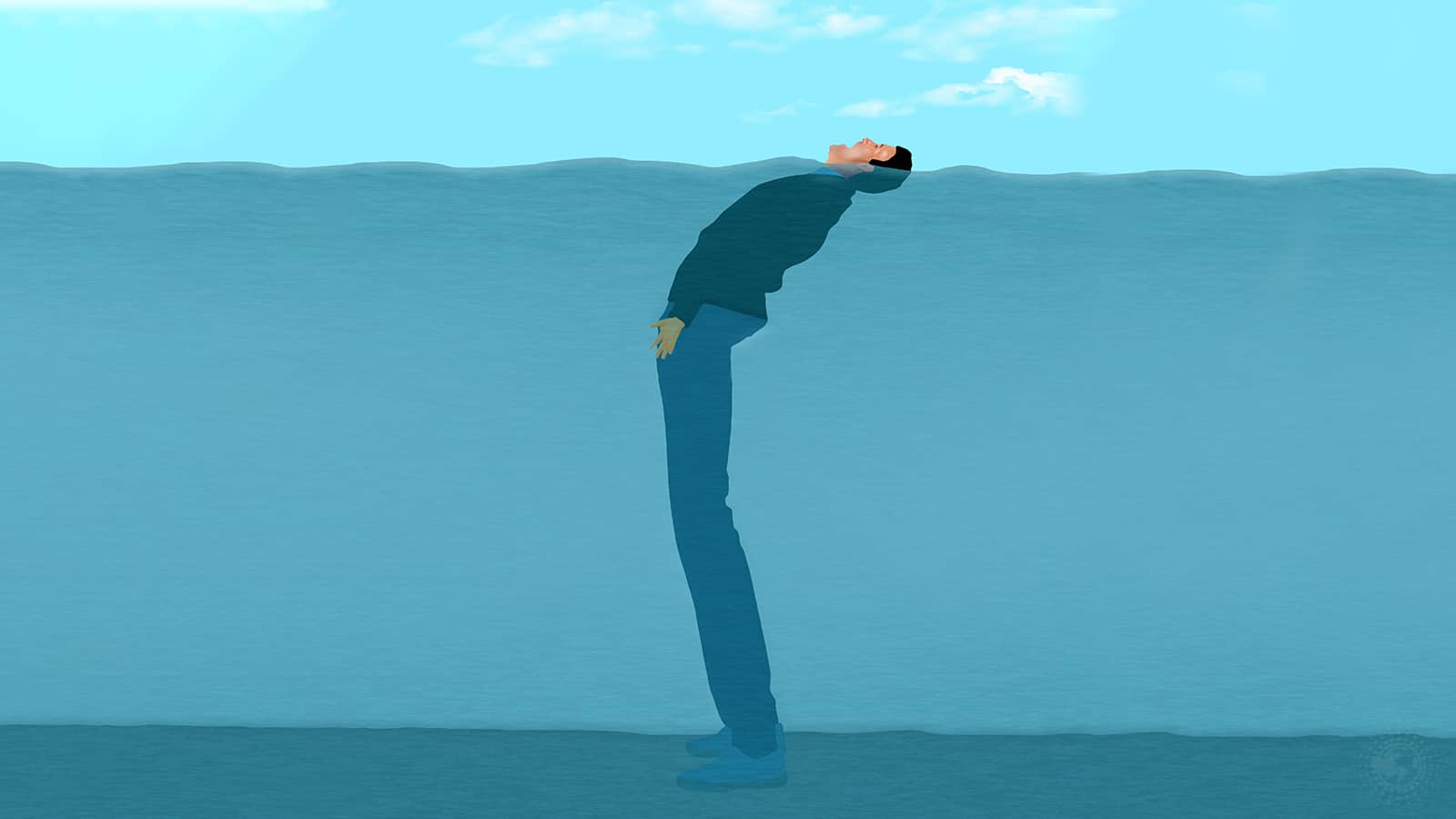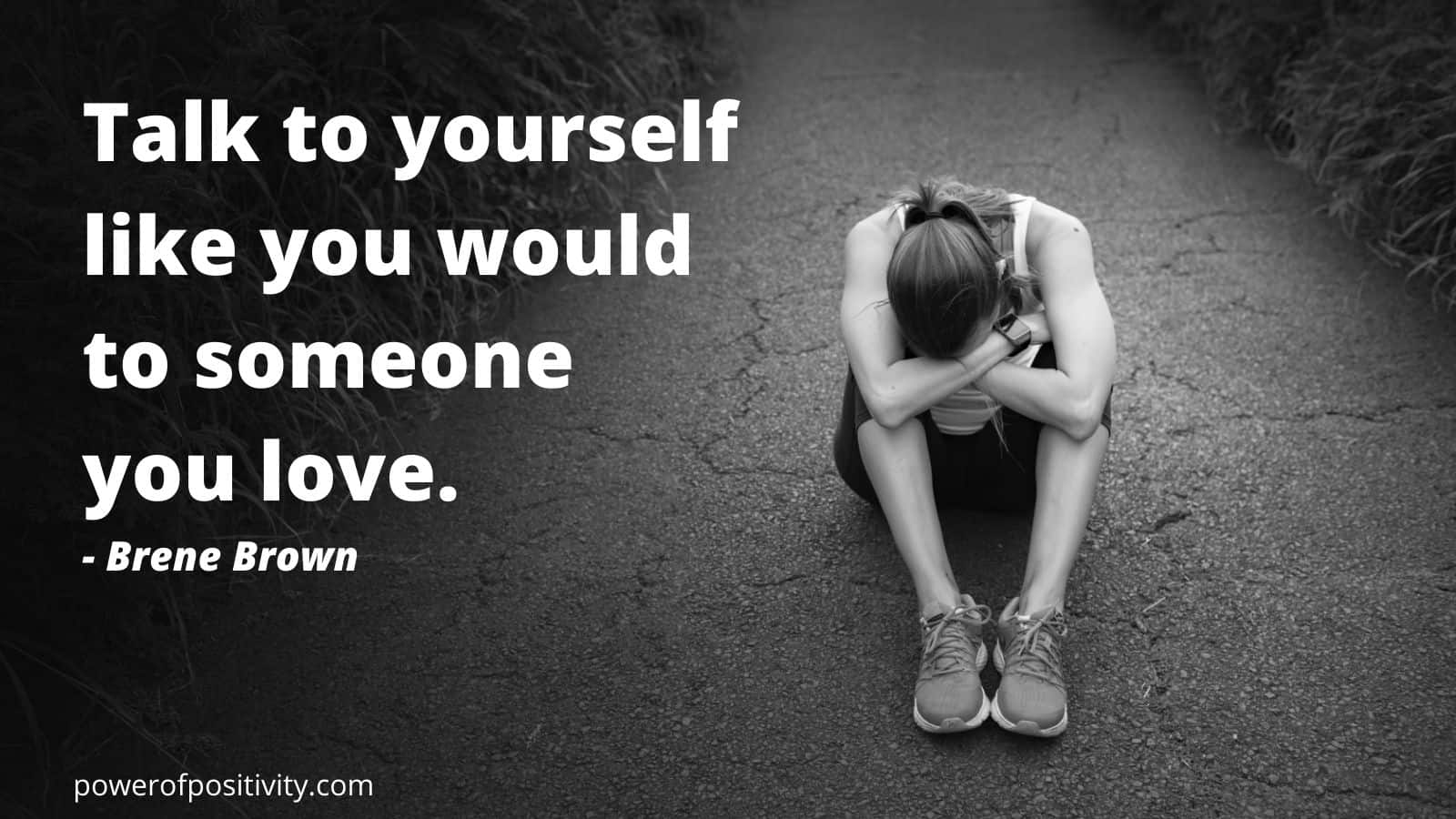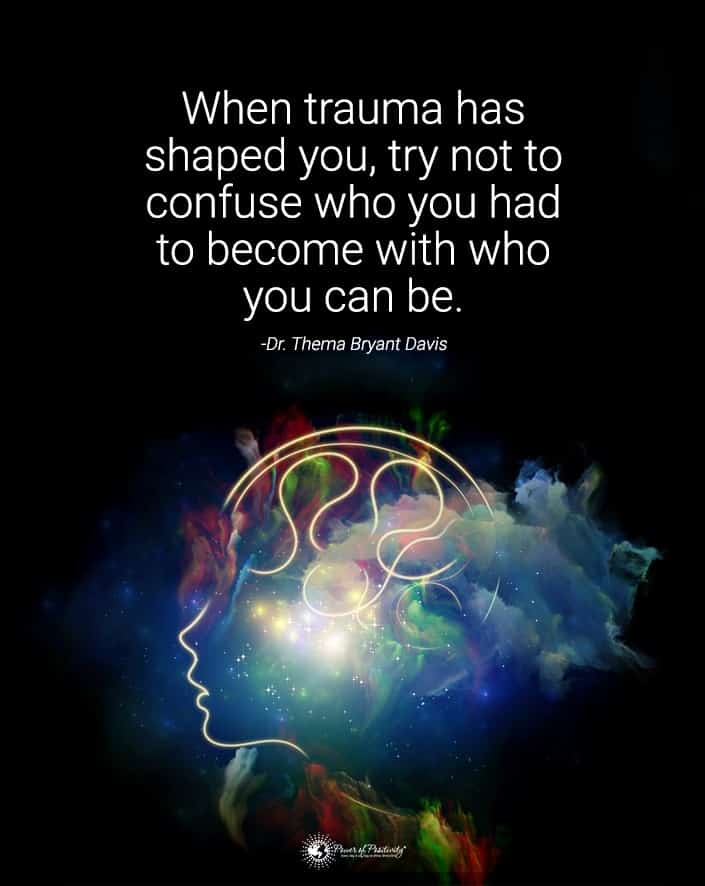Suddenly, the world around you looks different, and it’s almost as if you’re looking through a snow globe as your perception distorts. Your head is spinning, your heart is racing, and your body begins to sweat like you just ran a marathon. The symptoms of a panic attack seem overwhelming.
But could it be something else?
For example, is your anxiety causing all this discomfort?
Understanding Panic Syndrome
There are more than 2.7 million people in this country that have panic disorder, according to Anxiety Disorder Statistics. Panic and anxiety are often confused as they’re remarkably similar. You can have panic attacks when everything seems to be going great, or you can have them in during times of extreme stress.Your body feels stress, and the fast-paced society in America does nothing to help alleviate this tension. Anxiety is a constant issue for many. It’s an ache in the pit of your stomach that makes life unbearable at times.
Panic, on the other hand, is the feeling of impending doom or a complete meltdown, which occurs when your anxiety hits an all-time high. While you may feel anxious, you still function, but the symptoms of a panic attack stop you in your tracks.
What’s so confusing with panic attack symptoms is that you don’t know whether it’s anxiety or something medically gone awry. How do you know the difference, and when should you seek help?
Symptoms Of A Panic Attack You Shouldn’t Ignore
Even experts don’t know the difference between panic and heart trouble until they run tests and do a full evaluation. After you’ve dealt with this disorder for some time, you will be able to recognize similar signs and symptoms. Here are the most common symptoms of a panic attack that you should not ignore.
1. Chest Pains
Chest pains are something that you should not take lightly, no matter what the cause. Panic can cause your muscles to restrict in this area and give you the sensation that you have a heart attack. The key is to see if the pain alleviates or goes and comes.
During a panic, the pain will last during the attack, but it should quickly subside. Also, panic is known for getting the stomach acids all churned up, which can also cause an uncomfortable sensation in your chest.
2. Difficulty Breathing
Being unable to catch your breath is a terrifying feeling, especially if it comes on suddenly. Many people hyperventilate during panic because their body’s abundance of hormones causes an upset. Remember the old trick of breathing into a bag?
Many people breathe too fast when they’re panicked, and it’s often hard to tell the difference between being short of breath and hyperventilating. Using the bag trick helps you put some of the oxygen you’ve lost back into your body. You must be careful because many people who have heart attacks or other sicknesses will often hyperventilate.
3. Sweating
Sweating is a way to cool down the body, and it’s expected when you’re working hard or in extreme heat. However, when the body is under intense fear, sweating can come on quickly, even when you’re sitting watching television.
4. Dizziness
Dizziness is always alarming as you think the worse. While many things can cause you to be dizzy, your anxiety will tell you it’s the most troubling condition like a heart attack, stroke, or cancer. Different people report feeling various things.
Some folks say that they feel as if they’re on a merry-go-round, and they can’t get off. Others have a slightly unbalanced feeling. They can still walk and move around, but they feel like their equilibrium is off.
According to the National Institute of Health, many vestibular disorders can cause vertigo or an unbalanced sensation due to an inner ear disturbance.
5. Feeling Faint or Passing Out
Feeling faint goes one step beyond dizziness. You may feel as if you’re going down, and something is pushing you to the ground. Sadly, this fear is probably all in your mind.
Conditions like vasovagal syncope can cause this feeling, but people don’t pass out with panic in most instances. According to Cedars-Sinai Hospital, those who have syncope usually regain consciousness quickly. Some cases of panic are so severe that people pass out, and relatives or friends call the squad.
However, the most common way to differentiate between the two is that panic doesn’t usually cause fainting, and syncope and other conditions will cause these frightening experiences.
6. Heart Palpitations
Heart palpitations feel like many things to different people. Some say that they think their heart is doing flip-flops, while others feel like it’s skipping a beat or off rhythm. It’s important to notate the frequencies of these occurrences and how long they last.
If you have runs of palpitations in a row, it’s essential to get emergency care. Since it’s so hard to differentiate panic from heart problems, it’s always best to err on the side of caution. Stress can cause your heart to do funny things, but so can heart disease.
Also, conditions like a-fib can be a deadly situation that needs to be addressed quickly. The Mayo Clinic states that this rapid and unsteady heart rhythm can cause cardiac arrest or death if left untreated.
7. Chills
Have you ever watched a scary movie and seen an actor or actress so scared they’re shaking with fright? The same thing is happening inside your body. When you have an intense fear of panic or anxiety, it can cause your entire body to shake.
The rush of adrenaline and cortisol can cause you to feel sensations. The good news is that these shivers will quickly pass when your hormone levels go back to normal. Chills can be associated with sicknesses, too. Therefore, you must ensure it’s anxiety and not a stomach bug or the flu.
8. Unable to Move – Paralyzed
Sometimes you can get so fearful that you cannot move. The body can experience fight, flight, or freeze episodes that render you frozen. When the symptoms of a panic attack get so severe that you are catatonic or feel trapped, it’s a sign that your condition may morph into a somatoform disorder.
Somatoform disorders are a group of psychiatric conditions that are lumped into one. When you’re under such anxiety and stress that it comes out in a physical symptom, you’re experiencing conversion disorder. It’s called conversion disorder because the body is converting pressure into physical symptoms, and the most observed is a headache.
However, people can experience hysterical blindness or paralysis due to extreme levels of anxiety. According to American Family Physician, conversion disorder falls under the somatoform category.
9. Fear of Dying or Losing Control
Anxiety is often called the great pretender because it can make you think and feel things that aren’t real. One major issue that people with panic disorder face is fear of dying. Your body feels sensations that you don’t understand and are abnormal, so your first thought is that you’re going to lose control of your life is over.
Many people avoid going in public once they have panic attacks, which can morph into agoraphobia, a social anxiety disorder. Additionally, after you’ve dealt with panic for so long, you may become desensitized. For instance, you may feel impending death but shake it off due to panic.
However, something may be wrong in the body that is causing you to feel this way. Other issues, like brain cancer, can cause you to feel sensations. So don’t be so quick to dismiss things just because they follow a typical pattern.
10. Feelings of Detachment
One of the worst symptoms of a panic attack that people experience is detachment. Do you feel detached from your body during periods of strong unease? This only occurs in those who have a severe issue with anxiety, and it’s a coping mechanism from the body.
You may feel as if you’re looking at yourself from the outside or taking on an alter ego. According to the Calm Clinic, detachment can be mental, emotional, or physical.
Final Thoughts on Recognizing the Ten Symptoms of a Panic Attack
When you look over the list of things that happen to you during the panic, it’s truly horrifying to think that chemical imbalances and circumstances can do this to you. Since anxiety mimics so many other conditions, you can never be too sure.
While you don’t want to run to the hospital each time you have some heart palpitations or chills, you need to learn when you need to be evaluated. A panic attack’s symptoms differ for each person, and your panic can change over time.
Your attacks may start as choking sensations with a fear of impending doom and your heart racing, but years down the line, they become more or less severe with different symptoms. Thankfully, there are many holistic methods to treat both panic and anxiety so you can live a happy and worry-free life.
















 Community
Community

